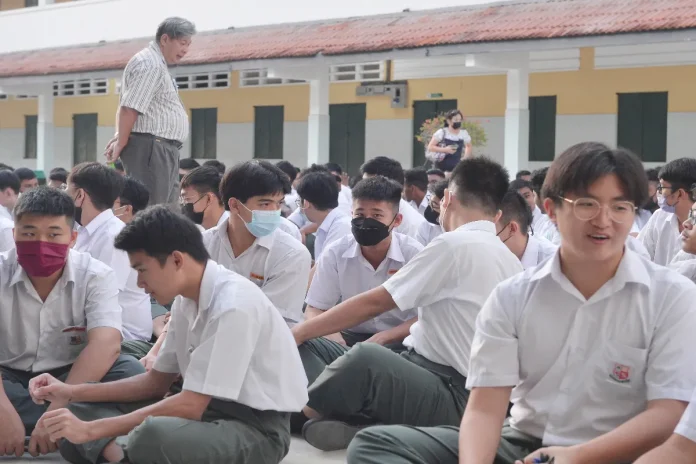Child advocates warn Malaysia’s schools rely on caning over real protection, urging systemic safeguarding reforms.
PETALING JAYA: Critics have said although Malaysian schools are failing to keep children safe, the national response is to reach for the cane instead of confronting deeper systemic breakdowns in protection and accountability.
Child advocacy group CRIB Foundation co-chairperson Srividhya Ganapathy has condemned what she described as a dangerous return to punitive practices that do little to prevent violence.
“Neither caning nor spot-checks would have prevented this incident, just as they would not have prevented the earlier stabbing or school rape cases.
“These are not discipline issues, they are failures of protection, supervision, threat assessment and escalation response.”
ALSO READ: ‘Rise in school violence shows growing psychological crisis’
She said violence in schools stems not from student misbehaviour but from systemic neglect.
“When a school cannot detect growing hostility, cannot provide a safe reporting channel, and cannot intervene early, violence is not ‘misbehaviour’. It is the foreseeable outcome of institutional inaction.”
While public frustration has grown over perceived indiscipline among students, Srividhya said the country risks confusing control with safety.
ALSO READ: Strengthening synergy needed to curb school bullying crisis in Malaysia
“Caning is a reaction after harm. Spot-checks are a display of control without actual prevention.
“In this rush for punitive optics, children, especially girls, are being forgotten.
“They are not experiencing protection. They are experiencing surveillance.”
She added that such measures send the wrong message to students, particularly victims of bullying or gender-based violence.
ALSO READ: Sarawak leaders call for public caning return in schools
“When the institutional response is to police students instead of protecting them, the message to children, especially girls, is not safety, it is blame.
“It tells them: ‘You are part of the problem.’ That is the point at which confidence in the system collapses.”
She added that real prevention lies in safeguarding, not punishment.
ALSO READ: Culture of violence spreading among youth online
Srividhya outlined five evidence-based measures that schools should adopt:
- teaching expected behaviour through modelling and clear routines, not intimidation;
- a transparent, predictable discipline framework applied uniformly, not arbitrarily;
- consequences that repair harm and build accountability, not humiliation or physical force;
- early intervention that detects escalation before a crisis point; and
- psychological and procedural safety for reporting, without backlash, ridicule or disbelief.
“This is not leniency. This is evidence-based risk management and safeguarding.
“If fear worked as protection, we would not still be seeing girls threatened, cornered and silenced. Fear does not prevent abuse, it conceals it.”
ALSO READ: ‘Lack of guidance may leave children morally lost’
She urged policymakers to move beyond nostalgia for punitive practices and instead build a “safeguarding architecture grounded in research, child rights and prevention”.
“Malaysia stands at a policy crossroads,” she said. “We could revert to punitive nostalgia, or we could build systems that actually protect children.
“The problem in our schools today is not too little caning, it is too little protection.”
Education Minister Fadhlina Sidek recently defended caning as a necessary disciplinary tool, saying that while education should nurture and humanise learners, discipline remains essential to maintain a conducive environment.
ALSO READ: Blurred virtual-reality lines may fuel youth aggression, says expert
“We must have some form of punishment in the context of enforcement,” she said, adding that corporal punishment is still permitted under Malaysian law and governed by a strict standard operating procedure.
She also reiterated that schools must conduct regular spot-checks to curb mobile phone misuse, and urged parents to monitor their children’s activities at home.
The latest incident in Kuching, where two boys allegedly bullied and threatened their female classmate, has renewed scrutiny of how schools detect and respond to warning signs of violence.
The case, now under investigation, is the third major incident to surface in as many days, underscoring what critics say is an urgent need for schools to prioritise protection over punishment.








